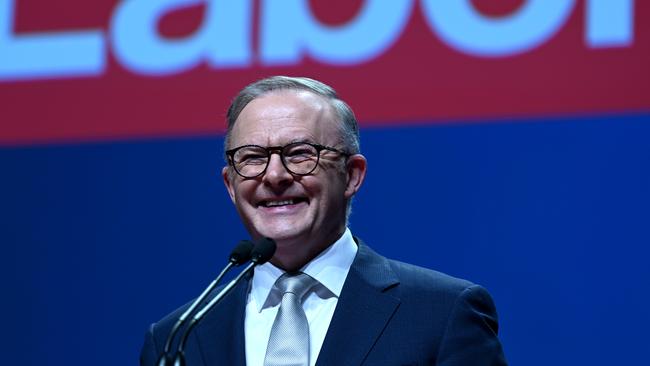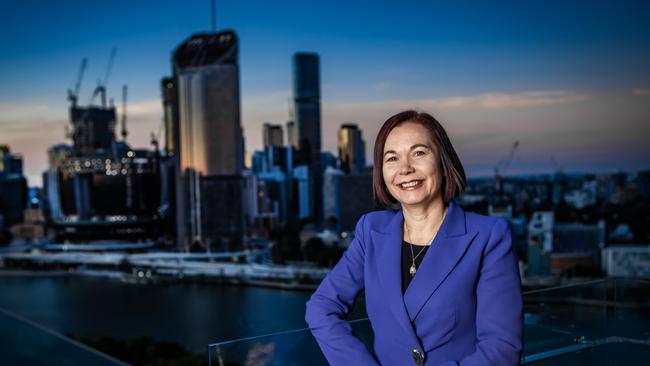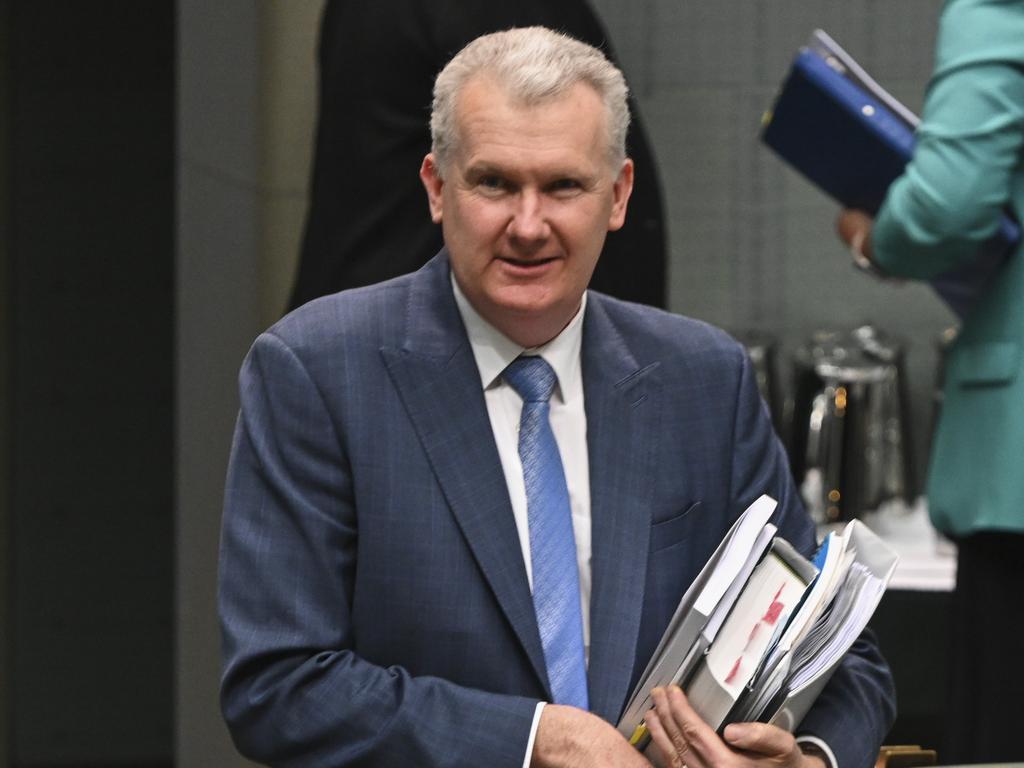PM woos miners amid escalating war on industry reform
Anthony Albanese has held firm on his sweeping IR reforms, telling mining chiefs ‘while we will not always agree on every aspect of every issue’, he shares some of their ambitions.

Anthony Albanese has held firm on his sweeping industrial relations reforms, telling mining chiefs “while we will not always agree on every aspect of every issue”, he shares their ambition to lift productivity, wages and living standards.
Speaking at the Minerals Week Dinner in Parliament House on Monday night, the Prime Minister pledged to continue consultation with mining companies on contentious IR changes attacked by the resources sector and other business groups.
As Mr Albanese sought to ease tensions with the mining sector, Minerals Council of Australia chief executive Tania Constable used her speech to describe the IR reforms as “some of the most extreme interventionist workplace changes that have ever been proposed”.
Ahead of attending the ASEAN and G20 summits in Indonesia and India this week, Mr Albanese told miners “our government will keep working with you to ensure that as you continue to create good, secure jobs, you can rely on a skilled and productive workforce”.
“This has been the focus of our constructive engagement on industrial relations reform, on overdue changes to the migration system and boosting skills. And, while we will not always agree on every aspect of every issue, we do all agree on the overarching objective: a more productive and prosperous Australia,” he said.
“I’ve always had great respect for the vital role your industry plays in our nation. And since being elected Prime Minister, I’ve gained a deeper understanding of the central role you play in our region.”
Speaking before Mr Albanese, Ms Constable warned mining chiefs there was no “sugar coating” the IR overhaul. The MCA chief said the workplace changes were “some of the most extreme interventionist workplace changes that have ever been proposed in Australia”.
“At a time when Australia needs more investment to unlock this exciting next chapter, these changes, added to other federal policies – environment, safeguards and energy – will push much sought-after capital to other shores,” Ms Constable said.
“At a time when we need to flex our industrial muscle and seize our moment, these changes ensure we fight with our hands tied behind our backs.”

Ms Constable, representing companies including BHP, Rio Tinto, Glencore and Whitehaven, said “when you distil these extensive changes to industrial law, you are left with one defining outcome – higher costs for everyone”.
She said miners would continue working with the government to “highlight both the opportunities ahead and the enormous risks of getting it wrong”.
With mining companies employing more than one million people and contributing over 14 per cent of GDP, Mr Albanese said his government’s efforts to stabilise relations with China are assisted by Australian resources giving “us a strong foundation to work from”.
“A real and compelling proof-point that the removal of trade impediments between our two countries always serves the interests of both our nations,” he said.
Writing in The Australian, Mr Albanese said “for decades, Australian minerals have been sought by every nation looking to industrialise … now they are vital to every nation seeking to decarbonise. Our national resources are doubly important to economies like Indonesia and India that are looking to do both – growing their economies and lifting their citizens’ living standards, while reducing their emissions.
“For a long time, those two ambitions were framed as competing priorities – a false choice between economic growth or action on climate change; between creating jobs or protecting the environment.”






To join the conversation, please log in. Don't have an account? Register
Join the conversation, you are commenting as Logout